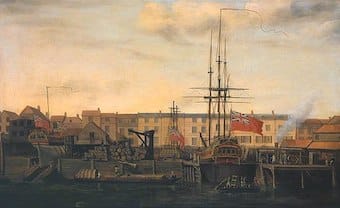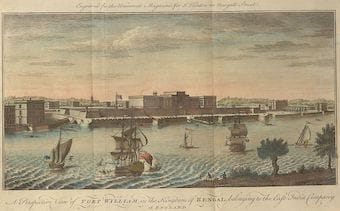In 1776, groundbreaking economist Adam Smith warned the East India Company against trying to act both as governors of India and as a European merchant company. These roles were mutually incompatible, because they were constantly bidding against themselves for the best deals; moreover, as foreign merchants they commanded respect in India only by the force of arms.
As European merchants, the Company’s duty was to make profits for European clients; but as governors of India, it was to secure India’s economic and social well-being. The Company chose European profits over India’s welfare, leading them to subdue India by military force, and limit India’s economic growth so that European rivals would not be tempted to challenge their monopoly.
116 words



